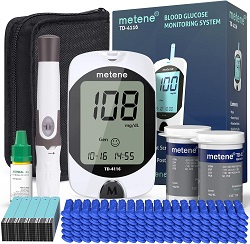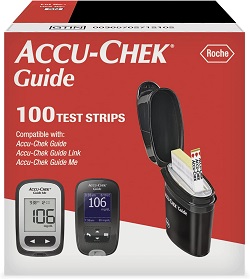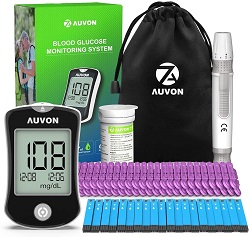Diabetes is a prevalent and complex condition that requires ongoing management to maintain optimal health. Regular self-testing for diabetes is essential for individuals with the condition to monitor their blood sugar levels and make informed decisions about their lifestyle and treatment. This guide provides valuable insights into self-testing methods, interpreting results, and using test data for effective diabetes management.
Understanding Diabetes
Diabetes encompasses a group of metabolic disorders characterized by elevated blood sugar levels over a prolonged period. The main types of diabetes include Type 1, Type 2, and gestational diabetes. It is crucial for individuals to recognize the symptoms and risk factors associated with diabetes, as well as understanding the potential complications of uncontrolled diabetes.
Self-Testing Methods
Blood glucose monitoring is a fundamental aspect of diabetes management. This involves the use of blood glucose meters to measure blood sugar levels at different times throughout the day. A step-by-step guide to using a blood glucose meter can empower individuals to perform accurate and reliable tests. Additionally, continuous glucose monitoring (CGM) systems offer a more comprehensive approach to monitoring blood sugar levels and provide real-time data to aid in diabetes management.
Establishing a Testing Routine
Establishing a regular testing routine based on individual needs is essential for effective diabetes management. By creating a testing schedule and adhering to it, individuals can gain valuable insights into their blood sugar patterns and make informed decisions about their daily activities, diet, and medication management.
Interpreting Test Results
Understanding and interpreting test results is critical for managing diabetes effectively. Knowing the normal range of blood sugar levels, as well as recognizing hypoglycemia (low blood sugar) and hyperglycemia (high blood sugar), empowers individuals to take appropriate action based on their test results.
Using Test Results for Management
Test results play a crucial role in shaping the management of diabetes. By adjusting diet, exercise, and medication based on test data, individuals can strive to maintain optimal blood sugar levels and reduce the risk of complications. Effective communication with healthcare providers based on test data can lead to personalized and targeted diabetes management strategies.
Challenges and Considerations
Several factors can affect the accuracy of test results, and individuals should be aware of these potential challenges. Additionally, addressing the emotional and psychological aspects of self-testing is vital, as consistent testing can have a significant impact on an individual’s overall well-being.
Blood glucose meter recommendation
- Advanced Glucometer Kit: metene TD-4116 diabetes testing kit is equipped with advanced technologies, brings more accurate and reliable results and better experience for your blood sugar control; a control solution is included for checking the glucometer and strips
- Easy to Use: The blood glucose monitor is with code-free design, ready for testing once insert the strip correctly; the quick guide inside the package lists the steps to do a test clearly, easy to follow; any problem about operation, we are here ready to answer and provide glucose monitoring system instructional videos
- 7 Seconds And 0.7µl Blood: This blood glucose meter kit just needs 0.7 microliter blood sample and 7 seconds to get you blood glucose value; Fast, minimizes wound and less painful
- More Clearly Glucose Trend: 4 modes to record your glucose value according to different time, shows your glucose trend more clearly; 450 blood sugar values storage, continuous 14/21/28/60/90 day average, which brings more convenient Diabetes management for you and your health provider
- User-friendly for The Aged: 4 reminder alarms could be set everyday to remind the aged to do a test in time, considerate; the display is larger than most glucose monitors, showing the results more clearly, easier to read for the aged
Product 2:Accu-Chek Guide Glucose Test Strips for Diabetic Blood Sugar Testing (Pack of 100)
- Checking your blood sugar is simple and easy using Accu-Chek Guide test strips; Get fast, accurate results you can trust with only a tiny blood sample
- For more convenient testing, unique design allows a tiny drop of blood to be placed anywhere along the end of the easy-fill strip
- Test strips come in a patented, spill resistant SmartPack that dispenses one strip at a time, helping to reduce dropped strips
- Designed only to be used with the Accu-Chek Guide, Guide Me, and Guide Link Meters; Not compatible with other glucometer testing devices; Includes 100 test strips
- For over 40 years, Accu-Chek has been a leader in providing convenient and accurate diabetic management supplies; Additional products sold separately include lancing devices, test strips, blood glucose meters, control solutions, and lancets
- Easy to Use. Get your blood glucose result in 5 steps, and the video in the listing provides more operation details to optimize your testing results, even you’re a first-time user, you can use it correctly. Our friendly customer support will always be here to answer your questions and help to resolve your concerns. (30 Day Money Back Guarantee)
- EXCEEDS INTERNATIONAL STANDARDS. AUVON BGMs can function within ±10%, or ±10 mg/dl of laboratory values over 95% of the time, which is far beyond ISO 15197:2013 passing standard (within ±15% or ±15 mg/dl). The manufacturer is certified with CE mark, GMP, ISO 13485:2016, and ISO 15197:2013 without having any recall on the market in the past 14 years.
- CUTTING-EDGE TEST STRIPS. We use cutting-edge test strips enzymes for blood glucose measurements. Our test strips are produced with unique Automatic Carbon Printing Technique to ensure that the quality of each batch of strips could be relevantly much more stable, precise and accurate. Additionally, PROMISED 0.16USD/pcs would keep you no pressure to repurchase.
- KEEP TRACK OF DATA. You can record your test results by time and date in the included log book, while the machine also keeps a continuous 7/14/30 days average results, which will help tracking and managing your health. The test requires only a few blood samples and reads in 6 seconds. Automatic off means our device works longer without having to worry about wasting battery life.
- ALL IN ONE: 1 x AUVON DS-W Blood Glucose Monitor, 1 x battery, 1 x Log Book, 50 x Blood Test Strips, 50 x 30 gauge Lancets, 1 x Lancing device, 1 x Storage Bag, 1 x Meter User Guide, 1 x Test Strip User Guide, Our Exclusive Lifetime Warranty and Technical Support and Friendly Customer Service.
FAQ
1.What is diabetes?
- Diabetes is a chronic condition that affects how your body processes blood sugar (glucose). There are different types of diabetes, including Type 1, Type 2, and gestational diabetes.
2.What are the symptoms of diabetes?
- Common symptoms of diabetes include increased thirst, frequent urination, unexplained weight loss, fatigue, blurred vision, and slow wound healing.
3.How is diabetes diagnosed?
- Diabetes is diagnosed through blood tests that measure blood sugar levels. These tests may include fasting blood sugar test, oral glucose tolerance test, or A1C test.
4.What are the risk factors for developing diabetes?
- Risk factors for diabetes include family history, being overweight or obese, leading a sedentary lifestyle, having high blood pressure, and being over the age of 45.
5.How is diabetes treated?
- Treatment for diabetes often includes lifestyle modifications such as a healthy diet, regular exercise, and weight management. In some cases, medication, insulin therapy, or other injectable medications may be prescribed.
6.What is the difference between Type 1 and Type 2 diabetes?
- Type 1 diabetes is an autoimmune condition where the body doesn’t produce insulin. Type 2 diabetes occurs when the body becomes resistant to the effects of insulin or doesn’t produce enough insulin to maintain normal blood sugar levels.
7.Can diabetes be prevented?
- While type 1 diabetes cannot be prevented, type 2 diabetes can often be prevented or delayed through healthy lifestyle choices, including maintaining a healthy weight, being physically active, and eating a balanced diet.
8.What are the potential complications of diabetes?
- Complications of diabetes can include heart disease, stroke, kidney disease, nerve damage, foot problems, vision loss, and skin conditions.
9.How often should blood sugar be tested?
- The frequency of blood sugar testing varies depending on the type of diabetes, individual health status, and treatment plan. It is typically recommended to test fasting blood sugar in the morning and before meals.
10.Can diabetes be cured?
- While there is currently no cure for diabetes, it can be effectively managed through proper treatment, lifestyle modifications, and ongoing medical care to control blood sugar levels and prevent complications.
Conclusion
Self-testing for diabetes is a cornerstone of effective diabetes management, providing individuals with the tools and insights necessary to make informed decisions about their health. By embracing self-testing methods, interpreting results accurately, and using test data for management, individuals can take an active role in their diabetes care, leading to improved overall well-being and health.






